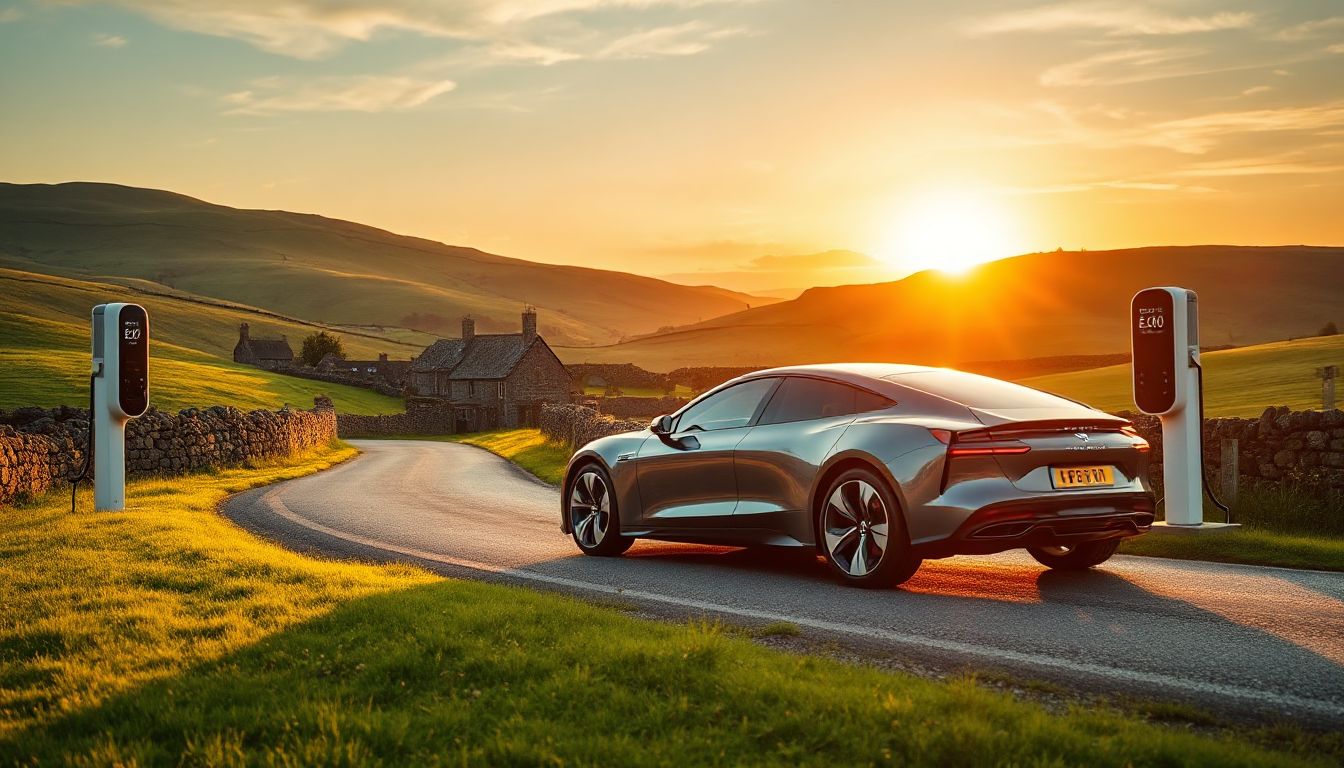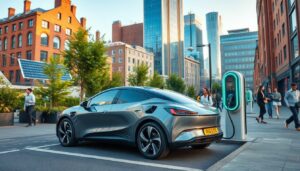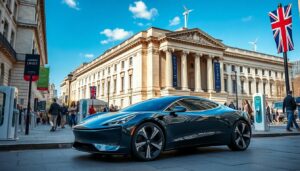Introduction
The UK’s love for electric vehicles (EVs) is booming. More people are choosing electric cars to cut emissions and save money in the long run. Electric cars are not just good for the environment; they are becoming more affordable too. As prices drop, understanding the full cost—including incentives and ongoing savings—is key to making a smart choice. Several factors influence EV prices, from battery tech to government rules. Knowing these can help you buy the best electric car without overspending.
Understanding the Current Electric Car Market in the UK
Market Overview and Trends
The UK EV market is rapidly expanding. Over 1.3 million electric vehicles have now been registered, showing steady growth since 2020. Leading brands like Tesla, Nissan, and Volkswagen offer many options. Prices vary from budget-friendly to luxury models, meaning there’s something for every budget. Entry-level EVs start around £20,000, while high-end models can cost over £90,000.
Factors Influencing Electric Car Prices
Several things affect how much an electric car costs in the UK. Battery tech is a big part—bigger and better batteries cost more but also offer longer range. Manufacturing costs, including supply chain issues, impact prices. Government policies, such as grants and taxes, can lower prices or add costs. Consumer demand for advanced features also pushes prices higher, especially in the luxury segment.
Pricing Range of Electric Cars in the UK
Entry-Level Electric Vehicles
Budget models are perfect for many first-time buyers. For example, the Renault Zoe starts at around £20,000. The MG ZS EV is also affordable, with prices close to £22,000. These cars usually have a range of 150-200 miles and basic features. They’re great for city driving and short daily commutes. However, they might lack luxury features and offer less space.
Mid-Range Electric Vehicles
Mid-range EVs, like the Nissan Leaf or VW ID.3, typically cost between £25,000 and £40,000. They come with better tech, bigger batteries, and longer ranges—often over 250 miles. Many qualify for government grants, reducing upfront costs. These cars are ideal if you want a good balance of price, power, and features for daily use.
Premium and Luxury Electric Vehicles
Luxury EVs, such as the Tesla Model S or Audi e-tron, start around £70,000 and can climb above £100,000. They are packed with advanced tech, premium interiors, and very long ranges, often over 300 miles. These cars are for drivers seeking top performance, cutting-edge features, and prestige. The higher price tag is often justified by innovation and luxury that go beyond basic transport.
Additional Costs and Cost Savings
Total Cost of Ownership in the UK
Besides the sticker price, look at other costs. Charging at home might need a dedicated charger, costing between £500 and £1,000. Public charging stations vary—from free to several pounds per session. Maintenance is usually cheaper than petrol cars—fewer moving parts and no oil changes. Insurance premiums can be higher or lower, depending on the model and driver history.
Incentives and Tax Benefits
The UK government offers incentives to make EVs cheaper. The Plug-in Car Grant can cut up to £2,500 off some new models. Electric cars also pay less road tax—sometimes as low as zero. Many cities charge no congestion fees for EVs, saving money during city driving. Future policies may make EV ownership even more attractive.
Long-Term Savings
Electric cars cost less to run. Charging your vehicle at home can be a fraction of what filling a petrol tank costs. They also generally need less maintenance, which cuts expenses over time. Plus, some electric models hold their value better. Overall, the long-term savings can outweigh the higher initial purchase price.
Tips for Finding the Best Electric Car Price in the UK
Comparing Offers and Deals
Shop around online and visit multiple dealerships. Use price comparison tools and keep an eye out for sales or special incentives. Timing your purchase around bank holidays or end-of-year sales could land you a better deal.
Financing and Leasing Options
Leasing is a good alternative for many buyers. It means lower monthly payments and fewer worries if you want to upgrade later. Tax-efficient financing options can also save money, especially for business owners.
Considering Total Cost of Ownership
When hunting for the best deal, don’t just look at sticker price. Think about the range, how you’ll charge, and the after-sales support. A higher upfront cost might be worth it if it means lower fueling and maintenance costs over time.
Future Outlook for Electric Car Prices in the UK
Prices are expected to keep falling over the next few years thanks to better battery tech and more EVs entering the market. Government policies are likely to stay supportive, making EVs more accessible. Expect new models to offer more range and features for less money. Overall, electric cars will become even more affordable and appealing.
Conclusion
Electric car prices in the UK depend on many factors—battery size, features, brand, and government support. While entry-level models are more budget-friendly, premium EVs offer luxury and range at a higher cost. It’s smart to consider total costs, incentives, and long-term savings before buying. With the market growing fast and prices dropping, now is a good time to go electric. Making an informed choice can save money and help protect the planet at the same time.




